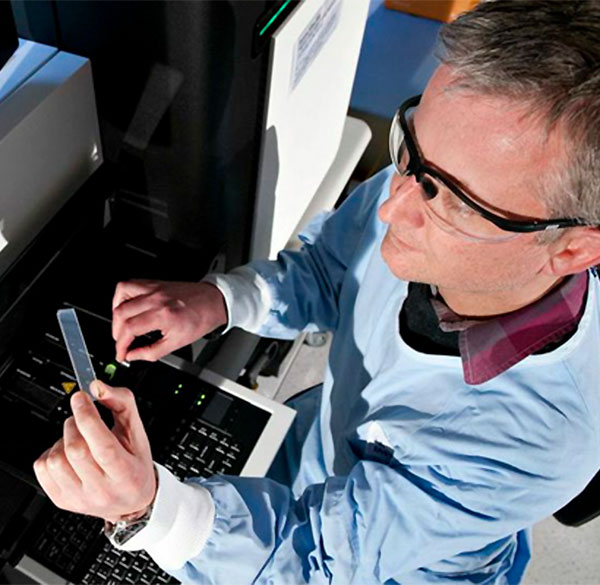
Professor Doug Brooks, leader of the Mechanisms in Cell Biology and Disease Research Group at the University of South Australia Cancer Research Institute.
New research in cell transport systems is signalling big advances and improvements for prostate cancer diagnosis and disease prediction. Professor Doug Brooks from the University of South Australia (UniSA) is drawing upon his understanding of the transport systems inside cells, to deliver game-changing breakthroughs for the diagnosis and prognosis of prostate cancer.
Prostate cancer is the second most common form of cancer in males, with about 20,000 new cases and 3,300 deaths each year in Australia. It can develop without men experiencing any distinctive symptoms, and so in November the Movember Foundation Australia works towards uniting Australian men, raising awareness of prostate cancer and bringing attention to the inequalities in men’s health outcomes. There are two major types of prostate cancer – indolent tumours which are slow growing and may not require treatment, and aggressive tumours which have the potential to kill and require an aggressive treatment.
Currently, Prostate-Specific Antigen (PSA) based tests used to diagnose prostate cancer can result in missed diagnoses, over-diagnosis, and unnecessary biopsies and treatments, which can lead to problems for the patient and significant expenses to the health care system.
PSA tests are also considered ineffective as a prognosis tool to predict the future course of a patient’s prostate cancer, so finding a more effective diagnostic and prognostic methodology for prostate cancer has been a holy grail for researchers for many years.
Prof Brooks’ group at UniSA has found that prostate cancer alters at least 19 endosomal genes involved in the transport of cell materials. The genes and their proteins are altered at different times and to different degrees, and depending on how this alteration occurs, correlates with either a very aggressive tumour or an indolent tumour. From examining this pathway it may be possible to better predict clinical outcomes in prostate cancer patients.
Accurate diagnosis and prognosis of patients requiring immediate therapeutic intervention will have a direct impact on patient survival, and help prevent over-treatment. Prof Brooks’ confidence in his research group’s findings is well supported by strong evidence.
The next step is to conduct a retrospective trial using samples from carefully controlled groups of patients, and this will then be followed by a clinical trial to confirm these findings. If these are successful, we could see new diagnostic and prognostic tests for prostate cancer based upon Prof Brooks’ work within the next three years.
With over 30 years’ experience in medical research, Prof Brooks has research projects on many fronts. As well as the projects already mentioned, Prof Brooks is working on improving diagnosis and prognosis for breast cancer, helping develop ways for our immune system to better fight colds and flus, plus developing new types of molecular probes capable of imaging lipids and sugars within live cells.
Along the way Prof Brooks’ work is highly likely to generate income through intellectual property rights, which will be invested back into medical research for the benefit of the whole community, and for South Australia in particular.
Your support will help Prof Brooks and his team continue their research into the future.

When you give today, 100% of your donation will go directly to the researchers - with no admin fees or hidden costs.
The University of South Australia (UniSA) is committed to tackling one of our most challenging diseases – cancer – by establishing the largest cohort of cancer researchers ever assembled in South Australia. Every day our experts are getting one-step closer to saving more lives as well as improving the quality of life for cancer survivors. But they need your help.
